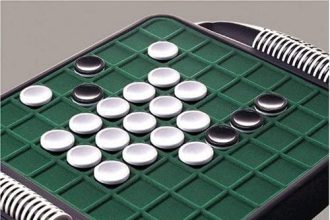Curly hair has its advantages and disadvantages. While it’s enviable to have bouncy, voluminous curls, it’s no secret that curly hair requires extra care and attention compared to straight hair. One of the most common questions curly-haired individuals ask is whether their locks need more moisture or protein. The truth is both are important for maintaining healthy curls. This article will explore the differences between moisture and protein in curly hair care and help you determine your mane’s needs.
- The Importance of Balancing Moisture and Protein for Healthy Curly Hair
- What Causes Hair Dryness?
- How to Identify the Difference Between Moisture and Protein Deficiencies?
- Tips for Maintaining Healthy Curly Hair
- Moisturizing Products for Curly Hair
- Protein Treatments for Curly Hair
- How to Balance Moisture and Protein in Your Curly Hair?
- Conclusion
The Importance of Balancing Moisture and Protein for Healthy Curly Hair
Your hair is made up of two main components: moisture and protein. When it comes to cream for curly hair, it is essential to find the right balance of moisture and protein to keep your curls defined and manageable. Moisture gives your hair flexibility and shine, while protein helps strengthen and repair your strands. When finding the right balance for your curly hair, it’s essential to understand how these two elements work together.
Too much moisture can leave your hair feeling weighed down and greasy, while insufficient moisture might cause breakage and make your hair dry and brittle. On the other hand, too much protein can make your hair feel stiff and straw-like, while not enough protein can leave your hair weak and vulnerable to damage.
Achieving the ideal protein and moisture balance for curly hair is essential for healthy, happy strands. In this article, we’ll help you understand the difference between moisture and protein, how to know if you need more of either one, and some of our favorite products to help get your curls back in shape.
What Causes Hair Dryness?
Dry hair is a common problem that can have many causes. Some of the most common causes of dry hair include:
– shampooing too often
– using harsh chemicals or heat styling tools
– being in a low-humidity environment
– not drinking enough water
– having a medical condition such as an underactive thyroid gland or psoriasis
If your hair is dry, it’s essential to determine what is causing the problem so you can treat it effectively. Knowing the cause will allow you to take preventative measures for dryness and keep your hair healthy and moisturized.
How to Identify the Difference Between Moisture and Protein Deficiencies?
If your curly hair is dry, frizzy, or lacking in definition, you may wonder if it’s a moisture or protein deficiency. Here are a few ways to help you identify the difference:
1. Check the elasticity of your curls. Moisture-deficient hair will feel dry and brittle, while protein-deficient hair will feel mushy or limp.
2. Examine your scalp. A healthy scalp should be free of flakes and irritation. If you have a moisture deficiency, your scalp may be dry and itchy; if you have a protein deficiency, your scalp may be oily or flaky.
3. Take a closer look at your strands. Healthy hair should be smooth and shiny. If your hair is dull or lifeless, it may lack moisture; if it’s straw-like or prone to breakage, it may be deficient in protein.
Once you’ve determined whether your curly hair needs more moisture or protein, you can take steps to address the issue with products and treatments specifically designed to add hydration or fortify strands.
Tips for Maintaining Healthy Curly Hair
Having curly hair may be a delicate balance to keep it healthy and well-moisturized. Finding the right hair moisturizer for curly hair is crucial in maintaining its natural texture and preventing frizz. You must ensure you’re getting enough moisture and protein, but too much of either can lead to problems. To maintain the health of your curly hair, follow these suggestions:
1. Make sure you’re using good shampoo and conditioner. Look for ones specifically designed for curly hair or that say they’re “moisturizing” or “hydrating.”
2. At least once every week, deep condition your hair. Your hair will stay moisturized and avoid getting dry and brittle by doing this.
3. Use a leave-in conditioner when your hair needs extra moisture. This can be very beneficial when the air is drier in the winter.
4. To prevent split ends, get frequent trims. This will also help keep your hair looking its best.
5. Be careful not to use too much heat on your hair. Curly hair is often more fragile than other types, so avoid using styling tools like curling irons or blow dryers too often. If you do use heat, be sure to use a heat protectant spray first.
Moisturizing Products for Curly Hair
Achieving the ideal protein-to-moisture ratio can be challenging for curly hair. If your hair is too dry, it can become brittle and prone to breakage. On the other hand, if your hair is too oily, it can weigh down your curls and make them look lifeless.
So, how do you know if your curly hair needs more moisture or protein? An excellent place to start is by looking at the condition of your strands. If your hair feels dry and straw-like, it may lack moisture. On the other hand, if your hair feels greasy or limp, it may need more protein.
There are a variety of different moisturizing products on the market that can help address these issues. For example, leave-in conditioners and oils can help add moisture to dry strands, while deep conditioners and protein treatments can help strengthen and repair damaged hair.
Ask a stylist or dermatologist for advice if you need help determining which product type is right for you. They will be able to assess your individual needs and recommend the best products for keeping your curls healthy and hydrated.
Protein Treatments for Curly Hair
Your hair is made up of keratin, a protein. So, it would make sense to add protein to your hair if it’s lacking. That’s where protein treatments come in. Protein treatments can come in serums, masks, or deep conditioners.
If your hair feels weak and brittle, a protein treatment can help strengthen and repair it. If you have heat damage or color-treated hair, a protein treatment can also help. Protein treatments can even help with curl definition.
How do you know if your hair needs a protein treatment? One way to tell is by doing a strand test. Take a small section of your hair and stretch it out. A protein treatment could be helpful if your hair seems dry and breaks easily.
When using a protein treatment, follow up with a moisturizing conditioner or mask to hydrate your hair. Otherwise, your hair could end up feeling dry and straw-like. And as always, use products that are specifically designed for curly hair!
How to Balance Moisture and Protein in Your Curly Hair?
Finding the ideal moisture and protein ratio might be difficult if you have curly hair. Too much humidity and your hair can become limp and lifeless; too much protein and it can become dry and brittle. So how do you find the perfect balance?
Here are a few tips:
1. Use a moisture-rich conditioner. Choose one that includes organic butter or oils, such as shea or coconut. After washing, apply it to your wet hair, let it sit for a few minutes, and then rinse it.
2. Deep condition once a week. Your hair will become more manageable and moisturized as a result. Again, look for a conditioner that contains natural oils or butter. Apply it to your wet hair, cover it with a shower cap, and leave it on for at least 30 minutes before rinsing.
Conclusion
Moisture and protein are both essential for healthy curly hair, but knowing which your curls need most can be tricky. Fortunately, with the help of this article, you should better understand how to tell if your hair needs more moisture or protein to keep it looking its best. Use these tips and tricks to ensure your curls get what they need daily.














